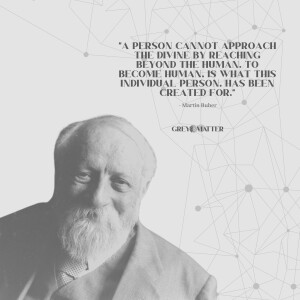
An excerpt from the full article:
Since we’ve recently celebrated Christmas, I decided to approach a poignant topic from a religious and philosophical perspective. In this vein, I recalled a great theologian whose work I studied as an undergraduate at Lutheran College, and marked its application to the present global crisis. Martin Buber was one of the most brilliant religious thinkers of the 20th century. He has perhaps had more influence upon Christian thinking than any other Jewish philosopher in modern times. His ideas have transcended the spheres of education, literary criticism, psychology, anthropology, ethics, and even political philosophy.
Buber was born in 1878 and lived most of his early life with his grandfather at Lemberg in Galicia. Under his grandfather’s influence, he discovered Hasidism, a Jewish protest movement that was to greatly impact his own interpretation of life. He died in 1965. Buber studied at the universities of Vienna and Berlin before rising to become the chair of Jewish Philosophy at the University of Frankfurt. The Nazis’ rise to power interrupted his teaching. He resigned from his professorship in protest once Hitler came to power in 1933. From 1933-38, he taught in Jewish schools in Germany despite obvious persecution, helping to strengthen the identity and courage of his people.
In 1938, Buber settled in Jerusalem and lectured in anthropology throughout the Second World War. After the war, he became professor of social philosophy at Hebrew University and the pre-eminent Israeli philosopher. Buber retired in 1951, but still lectured in the U.K., the U.S., and elsewhere, extending the understanding of and interest in his profound ideas. Martin Buber’s classic work is entitled I and Thou. Though he does not ignore the darker side of the human condition, Buber was most concerned with exploring the positive, constructive dimensions of human experience.
To read the full article visit: https://www.greymatterpodcast.ca/is-the-covid-19-pandemic-an-existential-crisis/